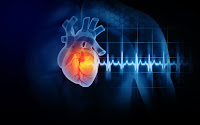
Patients who are diagnosed with depression or anxiety within a year of experiencing cardiac arrest may have a higher risk of dying sooner than their peers who are not diagnosed with these mental illnesses, a study in JAMA Network Open has found.
Juncheol Lee, M.D., Ph.D., of Hanyang University in Seoul and colleagues examined data from the claims records of 2,373 adults (median age 53 years; 78.4% male) who were hospitalized after cardiac arrest between January 1, 2005, and December 31, 2015, and who survived for at least one year. The researchers excluded patients who had been diagnosed with depression or anxiety within three years before their cardiac arrest. The researchers compared the long-term survival rates (up to 14 years) among those diagnosed with depression or anxiety, diagnosed with only depression, diagnosed with only anxiety, and those without depression or anxiety.
Overall, 16.7% of the patients were diagnosed with depression or anxiety in the year after their cardiac arrest; 10.6% were diagnosed with depression, and 9.6% were diagnosed with anxiety. Patients who were diagnosed with either disorder had a 41% greater risk of dying during the follow-up period compared with their peers without such a diagnosis. Specifically, those who were diagnosed with depression had a 44% greater risk of death.
The researchers noted that physical changes that often develop in the wake of a cardiac arrest can disrupt patients’ lives and make it difficult to complete previously simple daily tasks without assistance.
“These realities and arduous transformations can cause extreme limitations and despondency. Such life changes can result in a decrease in health-related quality of life, which affects psychological distress,” Lee and colleagues wrote.
“Because the present study identified an association between psychological dysfunction and an increase in long-term mortality, we believe it provides evidence that psychological rehabilitation of patients with [out-of-hospital cardiac arrest] is crucial,” they concluded.
(Image: iStock/Mohammed Haneefa Nizamudeen)
Don't miss out! To learn about newly posted articles in Psychiatric News, please sign up here.


